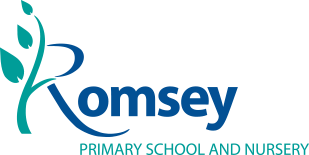Mathematics
Mathematics is, in its own way, the poetry of logical ideas.
Albert Einstein
Why maths?
Maths is a vital life skill. It helps children understand numbers, shapes, and patterns, and develop problem-solving and logical thinking. These skills are used every day—when telling time, handling money, or measuring—and form the foundation for future learning in science, technology, and beyond.
Maths intent
For all pupils to be skilled in mathematical fluency, problem solving and reasoning across all phases of the school. Through excellent subject knowledge of teaching staff, models, images and strategies will be carefully selected and taught to pupils through a concrete-pictorial-abstract approach, enabling a deep understanding of the concepts taught. Pupils will be taught to think flexibly to select the most efficient strategies through a progressive approach to arithmetical fluency as well as developing written methods. Pupils will develop their understanding, reasoning and explaining skills using the correct mathematical vocabulary. They will learn a range of strategies to approach problem solving, including the ability to try things out and adapt. Pupils will be able to see the value of the mathematics they learn and recognise it as a key part of everyday life. Pupils will experience a mathematically rich learning environment to support their understanding.
Key maths knowledge and skills
Key Knowledge
- Number and Place Value: Understanding numbers, counting, and how numbers relate to each other.
- Addition, Subtraction, Multiplication, Division: Learning the four operations and how to use them in different contexts.
- Fractions, Decimals, and Percentages: Understanding parts of a whole and how they connect.
- Measurement: Working with length, weight, capacity, time, and money.
- Geometry: Recognising shapes, angles, position, and direction.
- Statistics: Reading and interpreting charts, tables, and graphs.
Key Skills
- Problem-Solving: Applying maths to real-life situations.
- Reasoning: Explaining answers and thinking logically.
- Fluency: Quick and accurate recall of number facts, including times tables.
- Using Mathematical Tools: Measuring accurately, using rulers, scales, and digital tools.
- Interpreting Data: Understanding and presenting information clearly.
How maths is taught
In Maths, we teach fluency in skills alongside opportunities for the children to problem solve, reason and explain their thinking. We draw upon materials from the White Rose and NCETM schemes to create units of work. Maths learning journeys begin with a review of the learning from the previous year and enable the children to demonstrate what they have learned at the end. We use a wide range of concrete resources to develop a good understanding of mathematical concepts before moving on to pictorial and abstract representations.
Maths overviews
Y1/2ks1 maths long term overview.pdf
Y3/4
lks2 maths long term overview.pdf
Y5/6
uks2 maths long term overview.pdf






